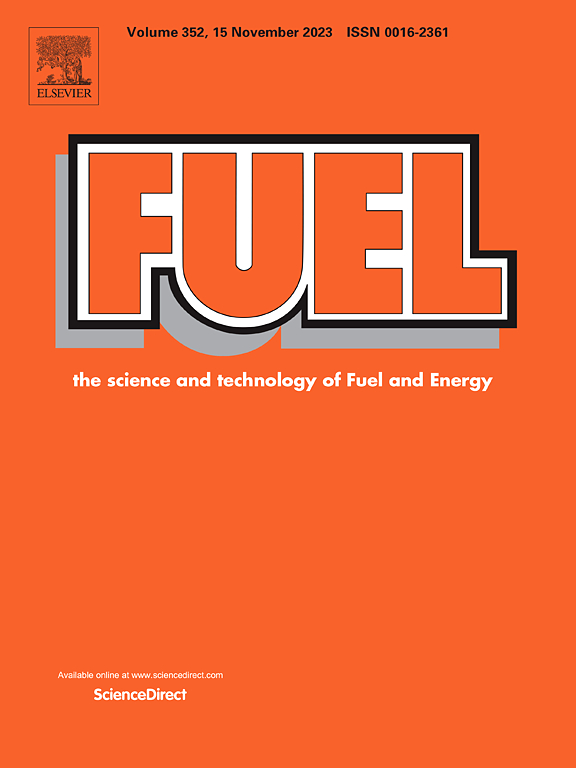Effect of reaction parameters on thermal liquefaction of corncob with methanol
IF 6.7
1区 工程技术
Q2 ENERGY & FUELS
引用次数: 0
Abstract
Hydrothermal liquefaction (HTL) presents a promising approach for converting organic resources into fuel oil. However, the interdependence of temperature, pressure, and solvent dosage during the HTL process complicates the assessment of their individual effects on fuel oil yield and quality. In this study, the HTL of corncob (CC) was conducted at temperatures ranging from 290 to 330 °C and methanol dosage of 10–30 mL, with pre-charge pressures varying from 0 to 1.6 MPa, enabling the decoupling of process parameters. The results revealed that the highest oil yield (22.53 wt%) occurred at 290 °C with a methanol dosage of 30 mL. The transition of methanol from a low-pressure superheated state (4.5 MPa) to supercritical pressure (8.1 MPa) exerted the most significant influence on the oil yield, increasing it by 8.53 wt%. Moreover, adjusting the system pressure between 4.8 and 5.8 MPa led to a 6.25 wt% rise in oil yield as temperature increased from 290 to 330 °C. Raising the methanol dosage from 10 to 30 mL at 310 °C, by controlling the system pressure of 8.1 to 9.1 MPa, resulted in a 4.16 wt% increase in oil yield. Modifications in reaction conditions that enhanced oil yield were typically associated with a decrease in the relative proportion of phenolic compounds and an increase in other components, such as hydrocarbons, ketones, and esters. This study provides valuable insights into the distinct impact of independently varied process parameters on the characteristics of fuel oil produced through HTL.
求助全文
约1分钟内获得全文
求助全文
来源期刊

Fuel
工程技术-工程:化工
CiteScore
12.80
自引率
20.30%
发文量
3506
审稿时长
64 days
期刊介绍:
The exploration of energy sources remains a critical matter of study. For the past nine decades, fuel has consistently held the forefront in primary research efforts within the field of energy science. This area of investigation encompasses a wide range of subjects, with a particular emphasis on emerging concerns like environmental factors and pollution.
 求助内容:
求助内容: 应助结果提醒方式:
应助结果提醒方式:


